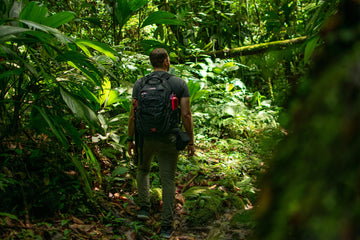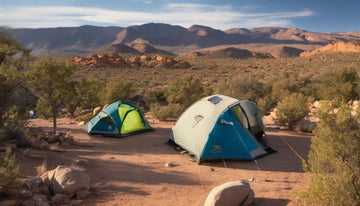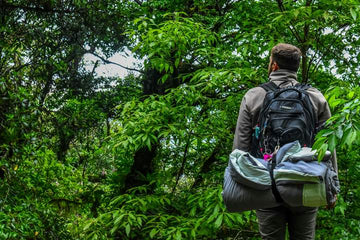Camping
The History and Culture of Camping: From Wilderness Survival to Modern Recreation
Jun 29, 2024

Camping is a beloved pastime for many Americans, offering a retreat from the hustle and bustle of everyday life. But beyond its modern recreational appeal, camping has a rich history and cultural significance that dates back to ancient times.
The Origins of Camping
Ancient and Primitive Societies: Early humans relied heavily on camping for survival, using it as a base for hunting and gathering. These primitive camps were integral to their way of life, demonstrating a profound harmony with nature.Military and Exploration: Camping has also played a crucial role in military and exploration contexts. From the encampments of ancient armies to the makeshift shelters of medieval knights, camping has been essential for sustained military campaigns. Similarly, explorers and early settlers used camping as a means to discover and tame new frontiers.
The Rise of Modern Camping
Late 19th to Early 20th Century: The rapid urbanization following the Industrial Revolution sparked a renewed desire to reconnect with nature. Camping emerged as a popular way to escape the crowded, noisy cities and find solace in the great outdoors.The First Camping Clubs and Organizations: Organizations like the Appalachian Mountain Club (founded in 1876) and the Boy Scouts of America (established in 1910) played pivotal roles in promoting camping. These groups formalized camping as a recreational activity and fostered a community of enthusiasts.
The Evolution of Camping Culture
Post-World War II Camping Boom:The post-war economic boom and the rise of automobile ownership made camping more accessible to families. This era saw a surge in family camping and the popularity of recreational vehicles (RVs).Advances in Camping Equipment and Technology: From the rudimentary tents of the past to high-tech camping gear today, advancements in equipment have revolutionized the camping experience. Innovations like portable stoves, sleeping bags, and modern RVs have made camping more comfortable and enjoyable.
Camping in American Culture
Camping and the American Family: For many American families, camping is a cherished tradition. National and state parks provide picturesque settings for these family adventures, fostering a deep appreciation for nature.Camping and Environmental Awareness: Camping has also influenced the modern environmental movement. The principles of "Leave No Trace" emphasize the importance of preserving natural spaces, encouraging campers to minimize their impact on the environment.
The Future of Camping
Modern Camping Trends:The rise of glamping (glamorous camping) reflects a trend towards more luxurious outdoor experiences. Additionally, eco-friendly camping practices are gaining traction, with a focus on sustainability.Integration of Technology with Camping: Technology continues to shape the future of camping. From smart devices and apps that enhance the camping experience to the potential use of virtual reality (VR) and augmented reality (AR) in outdoor adventures, the possibilities are vast.
References
For further reading and exploration, consider these resources:Books
- Camping and Woodcraft by Horace Kephart
- The Camper's Handbook by Thomas Hiram Holding
- The Complete Idiot's Guide to Camping and Hiking by Michael Mouland
Documentaries
- Ken Burns: The National Parks: America’s Best Idea
- Nature: Yosemite
Websites
Appendix
Timeline- Prehistoric Times: Early humans use temporary shelters for hunting and gathering.
- Ancient Military Campaigns: Armies set up camps as bases of operation.
- Middle Ages: Knights and explorers use makeshift camps during their journeys.
- 1876: Appalachian Mountain Club is founded.
- 1910: Boy Scouts of America is established.
- Post-World War II: Boom in family camping and the rise of RVs.
- Early 2000s: Glamping becomes popular.
- Present Day: Technology and sustainable practices continue to shape the future of camping.
Recommended Campsites
- Yosemite National Park, California
- Great Smoky Mountains National Park, Tennessee/North Carolina
- Acadia National Park, Maine
- Yellowstone National Park, Wyoming/Montana/Idaho
- Olympic National Park, Washington
Camping is more than just a recreational activity; it is a bridge between history and nature. Its rich heritage and evolving culture offer a unique way to connect with the past and embrace the present. We encourage readers to embark on their own camping adventures and experience the timeless allure of the great outdoors.
Related Articles



